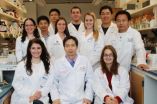(Press-News.org) Bariatric surgery, which significantly curtails the amount of food a person can eat, is the most effective treatment against obesity and is being recognized as a potentially valuable tool in the fight against diabetes related to obesity. It is being performed on increasing numbers of people worldwide, including teenagers.
Unfortunately, some types of bariatric surgery may also cause bone loss, a cause for concern, particularly when carried out on young people who have not yet reached their peak bone mass, say endocrinologists from Sydney's Garvan Institute of Medical Research, who have just published a review of current literature in the journal Obesity Reviews, now online.
Authors, Dr Malgorzata Brzozowska and Associate Professor Jackie Center, say that skeletal examination and treatment should be considered part of patient care, before and after procedures.
In the United States, 'Roux-en-Y' gastric bypass surgery, one of the most invasive of the procedures, is the most common. Much of the stomach is removed and part of the small bowel bypassed. Less radical is the 'gastric sleeve', which involves removing a large part of the stomach leaving a narrowed smaller stomach, restricting food intake and at the same time speeding the passage of food to the gut. The least invasive, and only reversible measure, is the 'gastric band', which is an inflatable ring placed between the oesophagus and stomach, making it possible to eat only small amounts of food slowly.
"Even though we don't yet understand all the mechanisms, we can see that the more radical the procedure, the greater the bone loss long-term," said Dr Brzozowska, who undertook the review as part of her PhD.
Dr Brzozowska is the first person to do a widespread analysis of current research into the complex interrelationships between fat, bone and nutritional restriction.
"In many situations significant weight loss is associated with bone loss, with or without surgery. The more invasive types of surgery appear to heighten bone turnover and the associated bone loss. This is thought to be caused not only by rapid weight loss and absorption of fewer vital nutrients like vitamin D and calcium, but possibly also by changes in hormones released by fat and the gut, and their impact on the central nervous system," she said.
In particular, the review points out, we should be aware of surgery-induced changes in hormones that can affect the central regulation of appetite and bone strength. These include the fat-derived hormones leptin and adiponectin; gut-derived hormones such as peptide YY (PYY), glucagon-like peptide 1 (GLP-1) and ghrelin; and the hypothalamic regulator of energy balance, neuropeptide Y (NPY). However, although there is quite a lot of animal data concerning these hormones and their effects, human data are scanty.
Associate Professor Jackie Center believes that the findings are very important despite the widely held assumption that obese people are protected against bone fragility and fracture.
"It has always been assumed that the heavier someone is, the denser their bones will be, because bones become strong when they carry a load. While that is true up to a certain point, the bones may not continue to become stronger in the very obese, who can also have low bone density and fracture.
"Increasing evidence suggests that in very obese people, the relationship between bone density and weight fails and that the excess fat is detrimental to bone.
"While there are many studies looking at weight loss and improvement in insulin sensitivity after bariatric surgery, very few look at what happens in bone.
"We are certainly not arguing against bariatric surgery. There is no doubt that it is an effective weapon against obesity and obesity-related diabetes. We just ask that doctors and patients take bone health into account.
"Bone mineral densitometry scans can be done and adequate calcium and vitamin D intake advised. For those patients at particular risk, additional monitoring may be advised and protective drugs considered."
###
ABOUT GARVAN
The Garvan Institute of Medical Research was founded in 1963. Initially a research department of St Vincent's Hospital in Sydney, it is now one of Australia's largest medical research institutions with over 500 scientists, students and support staff. Garvan's main research programs are: Cancer, Diabetes & Obesity, Immunology and Inflammation and Neuroscience. Garvan's mission is to make significant contributions to medical science that will change the directions of science and medicine and have major impacts on human health. The outcome of Garvan's discoveries is the development of better methods of diagnosis, treatment, and ultimately, prevention of disease.
MEDIA ENQUIRIES
Alison Heather
Science Communications Manager
Garvan Institute of Medical Research
+61 2 9295 8128
+61 434 071 326
a.heather "at" garvan.org.au END
When considering bariatric surgery think about bones
2012-11-02
ELSE PRESS RELEASES FROM THIS DATE:
Temporary storage for electrons: Natural method of producing hydrogen
2012-11-02
Scientists at the Max Planck Institute for Chemical Energy Conversion (MPI CEC) and the Ruhr-Universität Bochum (RUB) have found through spectroscopic investigations on a hydrogen-producing enzyme that the environment of the catalytic site acts as an electron reservoir in the enzyme. Thus, it can very efficiently produce hydrogen, which has great potential as a renewable energy source. The research team describes their results in the journal "Angewandte Chemie".
Producing hydrogen with enzymes
The system analysed constitutes an enzyme that catalyses the formation and ...
Health project in India saved many mothers and children
2012-11-02
Infant mortality has fallen by half, and the number of women who died from complications during pregnancy and childbirth by three-quarters. This is the result of a four-year health care project in one of India's poorest districts.
"We're overjoyed that mortality could be reduced with relatively simple means like mobile health care centres. It was successful because pregnant women and new mothers got the opportunity to actively seek care."
So says Siw Alehagen who, together with AnnaKarin Johansson, Orvar Finnström and Göran Hermansson – all of Linköping University ...
MRI research sheds new light on nerve fibers in the brain
2012-11-02
World-leading experts in Magnetic Resonance Imaging from The University of Nottingham's Sir Peter Mansfield Magnetic Resonance Centre have made a key discovery which could give the medical world a new tool for the improved diagnosis and monitoring of brain diseases like multiple sclerosis.
The new study, published in the Proceedings of the National Academy of Science, reveals why images of the brain produced using the latest MRI techniques are so sensitive to the direction in which nerve fibres run.
The white matter of the brain is made up of billions of microscopic ...
New finding gives clues for overcoming tamoxifen-resistant breast cancer
2012-11-02
CINCINNATI—A University of Cincinnati (UC) cancer biology team reports breakthrough findings about specific cellular mechanisms that may help overcome endocrine (hormone) therapy-resistance in patients with estrogen-positive breast cancers, combating a widespread problem in effective medical management of the disease.
Xiaoting Zhang, PhD, and his colleagues have identified a specific estrogen receptor co-activator—known as MED1—as playing a central role in mediating tamoxifen resistance in human breast cancer. The team reports its findings in the Nov. 1, 2012, issue of ...
Active surveillance can reduce suffering among men with prostate cancer
2012-11-02
With active surveillance many men with prostate cancer could dispense with radiation treatment and surgery, and thus avoid adverse effects such as incontinence and impotence. This is the outcome of a study of almost 1,000 men diagnosed with prostate cancer conducted at Sahlgrenska Academy, University of Gothenburg, Sweden.
The introduction of PSA tests, which are used to screen for prostate cancer, offers early tumour detection, reducing mortality rates. At the same time, prostate cancer is in many cases a slow-growing form of cancer. Many men may never develop symptoms ...
Don't ignore doubts about marriage, researcher warns
2012-11-02
Couples about to tie the knot shouldn't ignore nagging doubts about getting married, warns a University of Alberta researcher.
"If you are having doubts about the relationship, just ignoring them may make a difference years down the road," said Matthew Johnson who co-authored the study while at Kansas State University. Johnson is now an assistant professor in the University of Alberta Department of Human Ecology.
The study, published recently in the journal Family Process, found that couples who were more confident as they exchanged vows also spent more time together ...
Cannabis use mimics cognitive weakness that can lead to schizophrenia
2012-11-02
Researchers at the University of Bergen in Norway have found new support for their theory that cannabis use causes a temporary cognitive breakdown in non-psychotic individuals, leading to long-term psychosis. In an fMRI study published this week in Frontiers in Psychiatry, researchers found a different brain activity pattern in schizophrenia patients with previous cannabis use than in schizophrenic patients without prior cannabis use.
The results reinforce the researchers' model where cannabis users suffering from schizophrenia actually may have higher cognitive abilities ...
World record for the entanglement of twisted light quanta
2012-11-02
To this end, the researchers developed a new method for entangling single photons which gyrate in opposite directions. This result is a first step towards entangling and twisting even macroscopic, spatially separated objects in two different directions. The researchers at the Vienna Center for Quantum Science and Technology (VCQ), situated at the University of Vienna, and the Institute for Quantum Optics and Quantum Information (IQOQI) at the Austrian Academy of Sciences have were able to get their pioneering results published in the current issue of the renowned scientific ...
Grading US presidents on the economy
2012-11-02
During presidential campaigns, it's not unusual to hear candidates from both parties say they will focus on strengthening the nation's economy. But how well have presidents delivered on that promise once in the White House?
On a newly-released report card that grades presidents on their economic performance, Franklin D. Roosevelt, Warren G. Harding and Rutherford B. Hayes are at the top of the class, while Chester Arthur, Herbert Hoover and Martin Van Buren receive failing grades.
The first-of-its-kind study by the Georgia Institute of Technology analyzed up to 220 ...
Cancer bound
2012-11-02
A person doesn't have to go far to find a polycyclic aromatic hydrocarbon (PAH). These carcinogen precursors are inhaled through automobiles exhaust during the morning commute, are present in a drag of cigarette smoke, and are part of any barbequed meal.
Once ingested or inhaled, these big, bulky multi-ringed molecules are converted into reactive carcinogenic compounds that can bind to DNA, sometimes literally bending the double helix out of its normal shape, to form areas of damage called lesions. The damaged DNA can create errors in the genetic code during replication, ...



